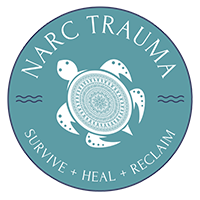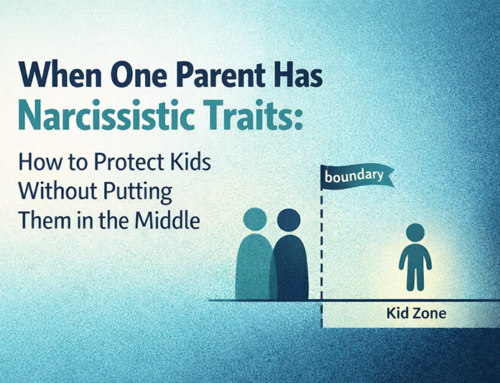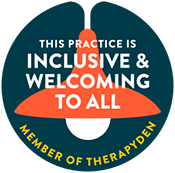The Next Generation of Narcissistic Behavior: Is Your Child Acting Like Your Ex?

By Brenda Stephens, Licensed Professional Clinical Counselor
I was chatting with a friend who, like me, has been in a relationship with a narcissistic partner. We were laughing about how our kids like to comment on our choices in partners and how maybe they could help us “vet” people next time. It was the kind of moment that comes from shared experience and mutual healing.
But the energy shifted when one of the adult children overheard part of what we said and reacted much more strongly than expected. The tension in the room was instant. Underneath the reaction, I could hear something familiar, the same defensiveness and emotional intensity we both remembered from our former partner.
My friend was shaken and I felt it too. For parents who’ve survived narcissistic abuse, seeing even a trace of those traits in our children can stir a deep mix of fear and guilt. We wonder if they absorbed too much from the other parent or if, despite our best efforts, some part of that pattern found its way into them.
I’ve heard similar stories from countless clients. It’s heartbreaking, but it’s not hopeless.
Why It Happens
Children learn who they are and how relationships work by watching the adults around them. When one parent models manipulation, rage, or emotional neglect, a child learns those are ways to get attention or maintain control. They may also learn that love comes with conditions, silence, or punishment.
Research supports this pattern. Studies show that children of narcissistic parents often develop insecure attachment styles, struggle with empathy, and are more likely to experience anxiety or depression as adults (Cai et al., 2022; Kealy et al., 2020). Another study found that children whose parents overvalue them, treating them as “special” or superior, are more likely to internalize narcissistic traits later in life (Brummelman et al., 2015).
But there’s good news here: risk is not fate. Most children of narcissistic parents do not become narcissists. With awareness, support, and healthy modeling, they can learn empathy, accountability, and emotional regulation.
Understanding What’s Really Going On
When an adult child lashes out, withdraws, or behaves in ways that remind you of their narcissistic parent, it’s rarely because they are “becoming” that parent. More often, they’re reenacting learned responses, unconsciously repeating what once kept them safe or in control.
Common drivers include:
Modeling: They absorbed the parent’s tone, posture, and reactions as normal communication.
Defense: They protect themselves with anger because vulnerability feels dangerous.
Repetition: Familiar chaos feels safer than unfamiliar calm.
The key distinction is awareness. Narcissistic traits can exist without a narcissistic personality. If your child can reflect, apologize, or show empathy after the fact, there’s room for growth.
How Parents Can Respond
You can’t control your child’s reactions, but you can shape the relational space between you.
Hold firm boundaries.
Calmly end interactions when disrespect begins. You teach emotional regulation by modeling it.
Refuse misplaced guilt.
You didn’t cause the other parent’s behavior, and you’re not responsible for how your child internalized it. You’re responsible only for what you model now.
Name what’s happening (later, and safely).
Once emotions have cooled and it feels safe for you both to engage, it can help to calmly name the pattern you see. You might say, “When you reacted that way earlier, it reminded me of your father’s anger, and I don’t want that pattern between us.” Addressing it after the heat of the moment, not during, helps your child hear you without feeling attacked and gives you both space to reflect instead of react.
Show empathy without enabling.
You can care about their pain while refusing to accept mistreatment. That balance is the antidote to narcissistic dynamics.
Notice signs of growth.
When your child owns their behavior or shows genuine remorse, acknowledge it. Change thrives when it’s seen and reinforced.
A Hopeful Ending
Watching your child display behaviors that remind you of your ex can be one of the most painful experiences a survivor faces. But these moments can also be turning points. They open space for honest conversations, empathy, and healing on both sides.
Sara and I have both seen our children wrestle with what they learned in unhealthy family systems. We have also seen them grow into people capable of reflection, kindness, and change. Those transformations remind us that children who once imitated dysfunction can learn empathy just as deeply.
Breaking generational cycles is not about perfection. It is about persistence. It is about showing up again and again, modeling respect and compassion, and reminding your children that love does not need control to survive.
If this article resonated with you, you don’t have to navigate the aftermath of narcissistic abuse alone. Here are ways to connect, learn, and heal with us:
- Listen to the podcast: Dive deeper into these conversations on Two Queens and a Joker: My Narcissist’s Ex and Me. Every episode combines lived experience with professional insight to help you feel less alone.
- Join a group: Healing happens in safe, validating spaces. Explore our specialized support groups for survivors of narcissistic abuse (SoNA) https://narctrauma.com/s-o-n-a-support-group/, and ask us about other supports, including programs for those going through divorce and recovery after narcissistic abuse.
- Work with a specialist: At NarcTrauma.com, I work exclusively with survivors of narcissistic abuse and have personally trained our therapists in working with survivors of narcissistic abuse. Whether through individual therapy, group programs, or guided resources, you’ll find tools to rebuild your sense of safety, self-worth, and identity.
You deserve to heal, reclaim your power, and build a future where connection is safe and real.
We specialize in helping survivors untangle the patterns of narcissistic abuse and recover their sense of self. Learn more at www.narctrauma.com.
Follow for support and resources:
Facebook: Narcissistic Abuse Recovery Center
TikTok: @narctraumarecovery
Instagram (Podcast): @2queensandajoker
Instagram (Recovery): @narcrecoverycenter
References
Brummelman, E., Thomaes, S., Nelemans, S. A., Orobio de Castro, B., Overbeek, G., & Bushman, B. J. (2015). Origins of narcissism in children. Proceedings of the National Academy of Sciences, 112(12), 3659–3662. https://doi.org/10.1073/pnas.1420870112
Cai, H., Sedikides, C., Gaertner, L., Wang, C., & Huajian, C. (2022). Narcissistic parents and the psychological well-being of their children: A systematic review. Frontiers in Psychology, 13, 1024633. https://doi.org/10.3389/fpsyg.2022.1024633
Kealy, D., Ogrodniczuk, J. S., Rice, S. M., & Kealy-Batista, M. (2020). Parental narcissism, child anxiety and depression: The mediating role of emotional dysregulation. Current Psychology, 39, 2029–2038. https://doi.org/10.1007/s12144-018-9874-2
Millon, T., & Davis, R. D. (2021). Personality disorders in modern life (3rd ed.). John Wiley & Sons.
Twenge, J. M., & Campbell, W. K. (2018). The narcissism epidemic: Living in the age of entitlement. Atria Books.







